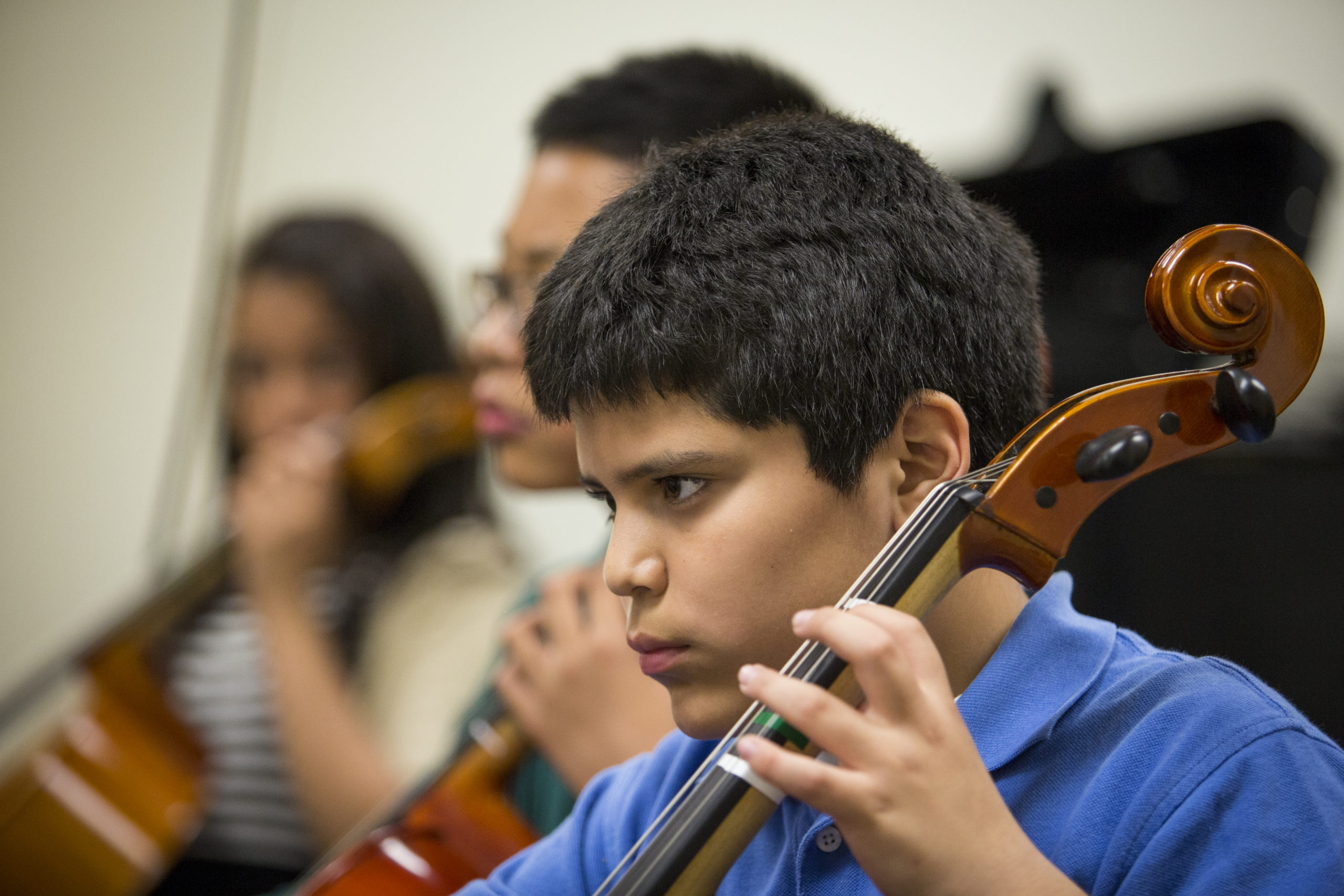
Kathleen Berger, Conductor
Students in Intermediate String Ensemble (ISE) work to develop and refine their ensemble skills. ISE is structured like a string chamber orchestra, with sectioned seating (First Violins, Second Violins, Violas, Cellos, Bass) and section principals. The repertoire focuses on original string orchestra compositions covering a wide range of musical eras and composers. ISE caters to many different student ability levels, but the majority of members are between the ages of 9-13, and have had a minimum of two-three years of private lesson experience on their instruments.
Rehearsals
Saturdays, 11:30 am – 1:00 pm
in-person
We want to make the audition process as stress-free and welcoming as possible. If you have an audition video from districts or another orchestra audition, please feel free to use that video in lieu of the specific requirements listed. We can reach out to you if we need more playing examples. Our goal is to simply hear a good representation of your current playing level and find the placement that will work best for you.
Please prepare and record an audition which is no more than 8 minutes in length and includes the following:
Auditions Requirements
Violin
- Two 2-octave scales of your choice
- One piece or etude from repertoire equivalent to Suzuki Book 2 (last five pieces) or Suzuki Book 3
Viola
- Two 2-octave scales of your choice
- One piece or etude from repertoire equivalent to Suzuki Book 2 (last five pieces) or Suzuki Book 3
Cello
- Two 2-octave scales of your choice
- One piece or etude from repertoire equivalent to Suzuki Book 2
Bass
- Two 2-octave scales of your choice
- One piece or etude from repertoire equivalent to Suzuki Book 2
Goals and Expectations
- Ensemble playing: listening to others, both within and across sections; adjusting pitches and learning to tune to the ensemble; matching bowings and articulations; applying all dynamic markings; continuing to develop strong sense of individual rhythm within the group; learning to voice and balance within and across the ensemble; learning to follow conductor’s beat patterns and expressions; learning to phrase in an orchestral context; introduction to different styles of playing relating to time period of composer; sightreading
- Individual techniques: working on aspects of intonation, rhythm, bowing, and good posture according to individual ability; applying concepts from private lessons into rehearsals
- Practicing: practicing ISE music on a regular basis during the week; working to retain key concepts and instructions from rehearsal to rehearsal; taking music to private lessons
Evaluations
Individual Review Days (IRDs) – Students are expected to individually perform selected excerpts from the ISE repertoire in front of the ensemble. IRDs occur 1-2 times per concert cycle, and the excerpts are given out at least three weeks prior. An atmosphere of positivity and encouragement is promoted by all.
Responsibilities
- Arrive on time: The first people to arrive are responsible for setting up chairs and stands. Everyone will be responsible for returning chairs and stands at the end of rehearsal.
- Arrive prepared: At the end of each rehearsal, students will be given clear instructions regarding what to practice for the next rehearsal. It is crucial to the success of the ensemble that everyone practices their parts individually, outside of Saturday rehearsals. Bring your music and a pencil to each rehearsal- don’t assume your stand partner will bring the music!
- Individual Review Days: During one rehearsal of each concert cycle, all members of ISE will individually perform selected excerpts from the repertoire we are currently studying. I will give two weeks’ notice prior to each of these Review days, with the specific measure numbers that each instrument section has to prepare.
- Ask Questions! If there is anything that you don’t understand about the music we’re playing, its better to ask me right away, either before, during or after the rehearsal. Asking questions is a necessary part of the learning process!